Barbara LaFitte
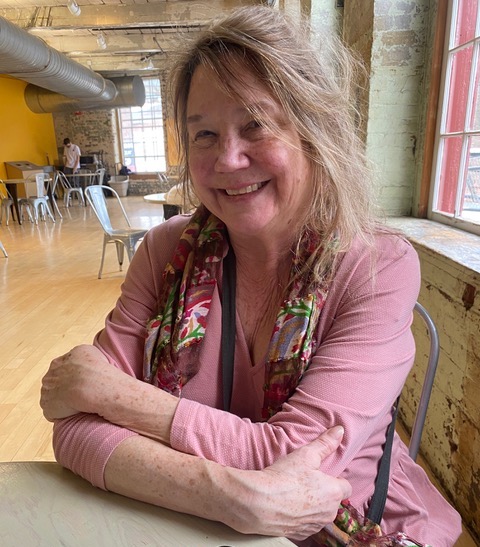
Now residing in the Berkshires of Massachusetts, oboist Barbara LaFitte was a familiar face on the Boston music scene. She was the principal oboist in the Boston Ballet Orchestra and held the English Horn position in the Boston Pops Esplanade Orchestra from 1994-2020. She was a member of the cutting-edge Boston Modern Orchestra Project. For many years, she was the principal oboist in the Boston Classical Orchestra, the Rhode Island Philharmonic, and performed regularly with Emmanuel Music in the Bach Cantata series. She can be heard on two recordings nominated for GRAMMY Awards: Boston Modern Orchestra Project’s recording of Stephen Mackey’s “Dreamhouse”, and Danilo Perez’s highly acclaimed jazz recording, “Providencia”. She is also the oboist on the theme music for the PBS program, Frontline.
Her summer activities have included performing at the Aspen Music Festival, Spoleto Festival dei Due Monde, Tanglewood Music Center, Bay Chamber Concert Series, Rockport Music Festival, Monadnock Music Festival, and in 2015, Jean-Luc Fillon’s Oboe Academy for Improvisation in La Roche Guyon, France. In 2024, she was a participant at “Joy in Marlboro”, working with Eugene Friesen and Kenny Werner on spontaneous improvisation.
Since 1994, Ms. LaFitte has been Professor on the faculty of Berklee College of Music in Boston, where she developed an innovative oboe studio, coaches contemporary chamber ensembles, and was co-founder of the Berklee Contemporary Symphony Orchestra. She currently teaches courses on Efficient Practicing, Audition Workshop, and Professional Development. Her Practicing Techniques course is also available through Berklee Online.
Ms. LaFitte presents masterclasses about topics such as “Circular Breathing Demystified”, “Oboists Outside the Bachs”, “Get Off the Page”, “Audition Preparation”, and “Phrasing in the Tabuteau Tradition”, and “The Curious Life of Nicolas Slonimsky”.
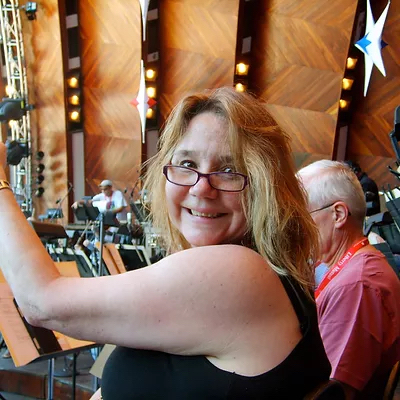
Hatch Shell, 4th of July
It was always an adventure playing with the Boston Pops Esplanade Orchestra outside at the Hatch Shell on July 4th!
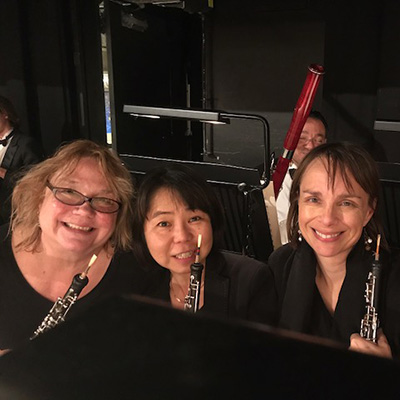
Boston Ballet Oboes
It was a joy to play in the Boston Ballet Orchestra for 27 years, performing Prokofiev, Tschaikovsky and Stravinsky. Even Mahler’s Third Symphony has been choreographed! (Image: from L-R, Barbara LaFitte, Kyoko Hida-Battaglia, Jennifer Slowik, Elizabeth England. Bassoons in back: Ron Haroutounian and Stephanie Busby, 2017).
My Story – How it all began?
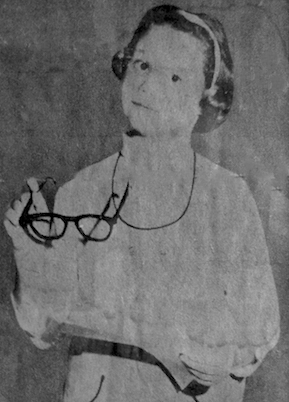 My first instrument was the zither, that’s right. It is lovely, a stringed instrument that I could play with the “music panels” under the strings, to indicate what to strum at what time. Of course, I’d begun singing in the children’s choir at church, with mom telling me not to look around while I was singing. I was to either look at the music or the choir director, but not around at the audience. And we had flutophones in school. Simple recorders. We tooted away with glee! We had a piano at home, but I never had lessons, I just played around with it, but my mom could play. She was my accompanist throughout grade school.
My first instrument was the zither, that’s right. It is lovely, a stringed instrument that I could play with the “music panels” under the strings, to indicate what to strum at what time. Of course, I’d begun singing in the children’s choir at church, with mom telling me not to look around while I was singing. I was to either look at the music or the choir director, but not around at the audience. And we had flutophones in school. Simple recorders. We tooted away with glee! We had a piano at home, but I never had lessons, I just played around with it, but my mom could play. She was my accompanist throughout grade school.
When I was in 9th grade, my sister was in 5th. That was when you chose your instrument in Phoenix, AZ. I told her to pick the oboe, because of its beautiful tone. We were not in school together, so I also picked up her oboe. We had back-to-back lessons with Central High School’s then band director, Harvey Zorn, who was an oboist. He gave us great basic training.
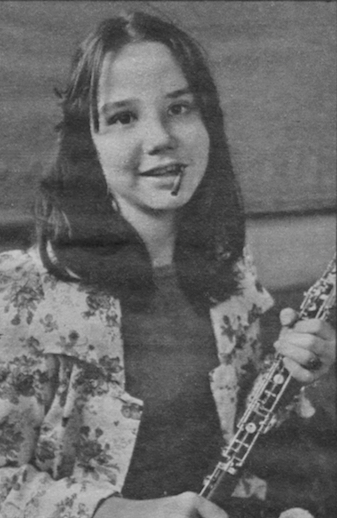 Yet at the same time, I was inspired by other kinds of music. Mom had Philadelphia Orchestra recordings, my brother had Miles Davis, and we had the Beatles. I loved all of it. So my early high school plan was to become a doubler (one who plays many woodwinds). I played clarinet in the band, oboe in the orchestra, and tenor sax in the jazz band. It was a blast!
Yet at the same time, I was inspired by other kinds of music. Mom had Philadelphia Orchestra recordings, my brother had Miles Davis, and we had the Beatles. I loved all of it. So my early high school plan was to become a doubler (one who plays many woodwinds). I played clarinet in the band, oboe in the orchestra, and tenor sax in the jazz band. It was a blast!
After getting into Arizona State University on scholarship, I entered into the Music Education major. But the oboe stole my heart. My last clarinet teacher was Lawry Bloom, who was doing his Master’s degree, and became the bass clarinetist in the Chicago Symphony. He told me, if I really wanted to play the oboe, I had to give up the other instruments, and became an oboe performance major. I’ve since thanked him!
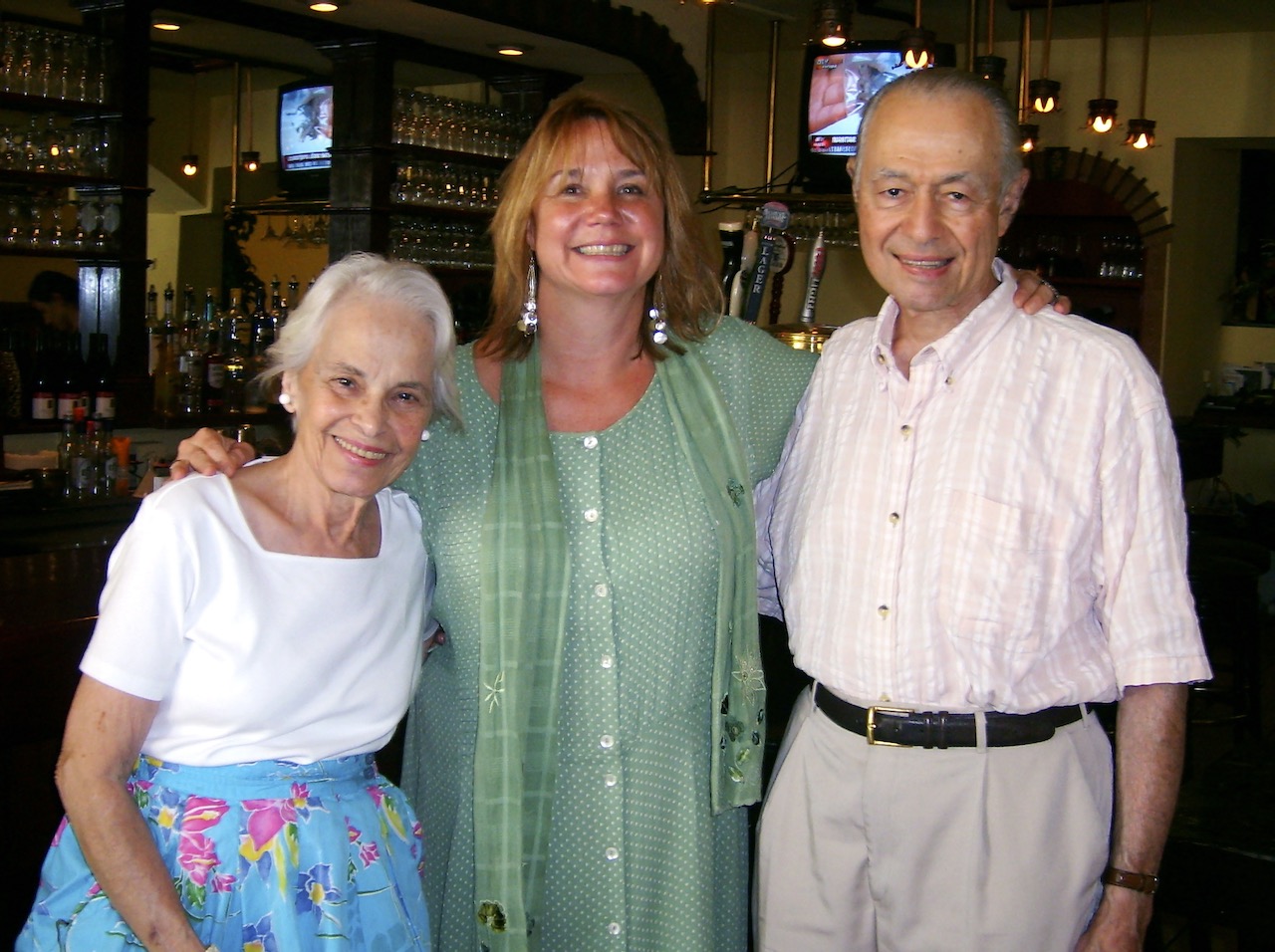
During all the summers of my undergrad in Tempe, I went to the Aspen Music Festival. I’ll never forget my first audition. I knew NOTHING! I went to play for Robert Bloom (not really knowing about his legacy), after slipping and sliding my knees into mud in my white jeans (nice first impression, right?). He asked me to play “La Scala” which I didn’t know. OMG was I out of my element. I didn’t even know how bad I was. Four years later, after studying hard, I was near the top of the heap. The colleagues I had were amazing: Kathy Greenbank , Linda Strommen, and Michael Rosenberg to name a few of the top players. Had I not gone to Aspen, there would be no hope. So I encourage all of you young oboists to go to the music festivals. That’s where I worked with Phil West and his wife, Jan DeGaetani extensively, Robert Bloom, Richard Kilmer, Ray Still, and Richard Woodhams.
Time to get more education. Choose your teacher well, as that person will become your mentor. Off to Philadelphia to study with Lou Rosenblatt, the kindest, most Zen, encouraging teacher I’ve ever known. In my first lesson, I was early, so he invited me to his lunch table, and suggested I read “Zen and the Art of Archery”. Immediate bond! He was such an inspiration. I miss him and his wife Renate, they were second parents to me.
Fast forward to Boston. The first thing I did was march my tiny resume to the Berklee offices. As a former doubler and lover of all kinds of music, I thought I’d be the perfect fit. I didn’t do any research. Joe Viola, the premiere teacher and creator of the woodwind department, was still happily teaching there. His favorite instrument was English Horn!
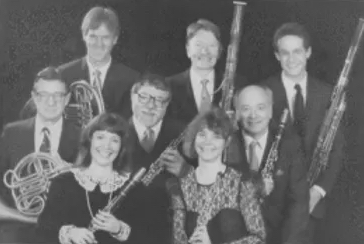 I began to freelance, slowly. It is really hard to break in to a town where you didn’t attend their music schools. Yet, I had been a fellow at the Tanglewood Music Center, which gave me an incredible “in” to the scene. I was invited to be the principal oboist of the Rhode Island Philharmonic in 1983, and in 1988 I was asked to be the 2nd oboist in the reformation of the Boston Woodwind Octet (formerly the Marlboro Octet of 1957). I sat next to Al Genovese, across from Harold Wright, along with Matt Ruggiero, Roland Small, and Dick Mackey, who were the original members of the 1957 octet. It was an amazing musical experience/lesson/blessing. We only had to stop when Harold passed of a heart attack in 1993.
I began to freelance, slowly. It is really hard to break in to a town where you didn’t attend their music schools. Yet, I had been a fellow at the Tanglewood Music Center, which gave me an incredible “in” to the scene. I was invited to be the principal oboist of the Rhode Island Philharmonic in 1983, and in 1988 I was asked to be the 2nd oboist in the reformation of the Boston Woodwind Octet (formerly the Marlboro Octet of 1957). I sat next to Al Genovese, across from Harold Wright, along with Matt Ruggiero, Roland Small, and Dick Mackey, who were the original members of the 1957 octet. It was an amazing musical experience/lesson/blessing. We only had to stop when Harold passed of a heart attack in 1993.
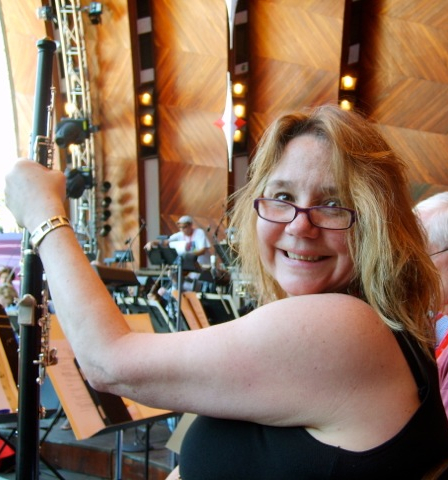 In 1994 everything came together. I had lived in Boston for 14 years, making ends meet by taking every gig offered to me, and working in banks (not a bad thing if you want to know how to get a mortgage!). In 1994, my friend Valerie Edwards decided to change careers, opening up the English Horn chair in the Boston Pops Esplanade Orchestra. Ira Deutsch, who had been principal oboe in the Boston Ballet decided to retire. and Joe Viola retired. Right place, right time? Preparation meets opportunity? I won the Ballet audition and signed my first Berklee contract on the same day.
In 1994 everything came together. I had lived in Boston for 14 years, making ends meet by taking every gig offered to me, and working in banks (not a bad thing if you want to know how to get a mortgage!). In 1994, my friend Valerie Edwards decided to change careers, opening up the English Horn chair in the Boston Pops Esplanade Orchestra. Ira Deutsch, who had been principal oboe in the Boston Ballet decided to retire. and Joe Viola retired. Right place, right time? Preparation meets opportunity? I won the Ballet audition and signed my first Berklee contract on the same day.
I’ve been very happy in my career. I LOVE teaching, and my teaching is not limited to oboe. I have developed a phrasing class, an audition workshop, chamber ensembles, I teach Professional Development to help students get ready for the real world. I have played in amazing ensembles with great musicians. I want to learn and share with you!
